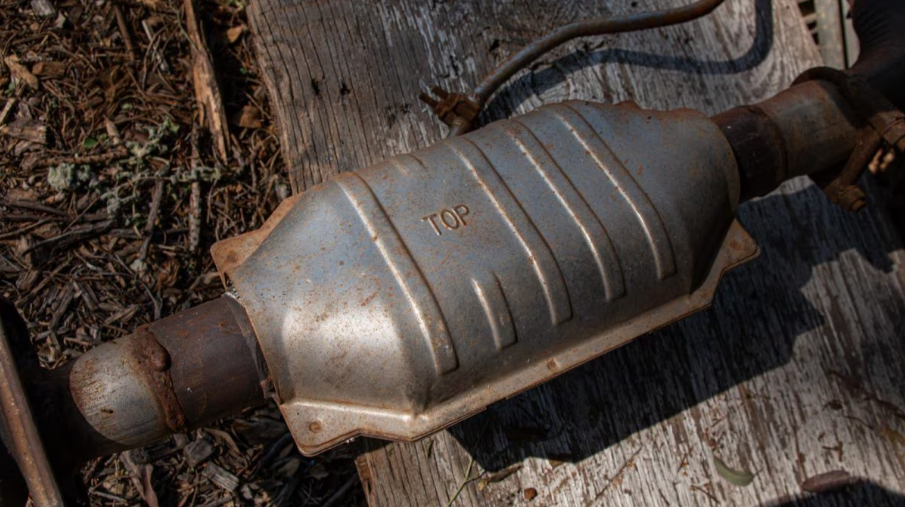The leader of a multi-state catalytic converter theft ring responsible for more than $600 million in stolen goods pleaded guilty July 21 in federal court in the Northern District of Oklahoma, the U.S. Department of Justice announced.
Navin Khanna, 41, of Holmdel, NJ, pleaded guilty to conspiracy and money laundering charges for orchestrating thefts from May 2020 to October 2022. The operation involved purchasing stolen catalytic converters from Oklahoma, Texas and other states and shipping them to his auto parts shop, D.G. Auto Parts, New Jersey for resale to metal refineries.
Khanna admitted to receiving more than $600 million through sales to a New Jersey-based metal refinery, later forfeiting as part of his plea deal cash, 11 luxury vehicles — including a Lamborghini, Ferraris and Mercedes-Benz AMGs — real estate, jewelry and more than 200 pallets of converters.
Khanna’s sentencing will be transferred to the Eastern District of California, where he awaits further prosecution for related crimes. He faces a maximum penalty of 168 to 210 months in prison.
Rising Costs: From Theft to Repair
The rise in precious-metal prices — platinum, palladium and rhodium — sparked theft surges during the pandemic, making catalytic converters targets nationwide. Metal recyclers now pay $50–$250 for standard units and up to $800 for hybrid converters, while replacement costs for consumers can range from $1,000–$3,500 or more. BOS Security cites $2,500 as the average repair cost, going higher on luxury and hybrids.
For collision repair shop owners, that translates into higher parts costs, longer turnaround times and frustrated customers. Collectively, in 2022 alone, converter thefts cost victims more than $382 million, and reports surged from 14,433 incidents in 2020 to more than 150,000 in 2022.
Regulatory Response & Compliance
States are increasingly imposing tighter controls to combat theft. Connecticut's 2022 statute mandates detailed documentation, traceability and dealer reporting, culminating in a 74% drop in claims from State Farm in early 2024, according to CT Insider.
Minnesota passed similar laws, requiring identifying marks, dealer logs and storage thresholds, and making unmarked converters a felony when possessed in bulk. California also enacted regulations demanding VIN documentation and licensed purchaser limits.
Collison shops may soon share liability if parts lack traceability. Complying with these layered state rules — plus the possible federal PART Act, which would require serializing converters and federal penalties — adds compliance costs and record-keeping duties for shop management.













